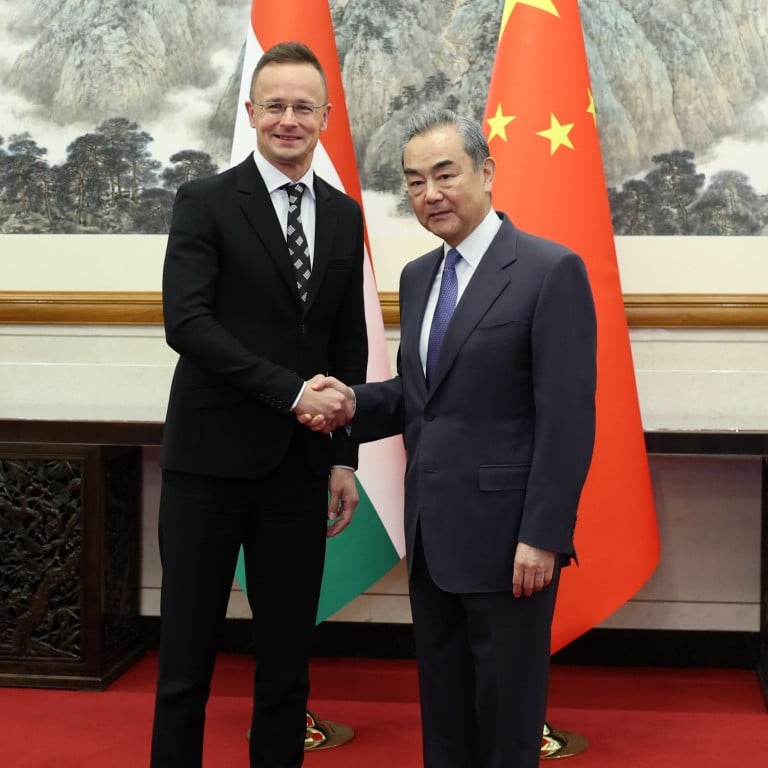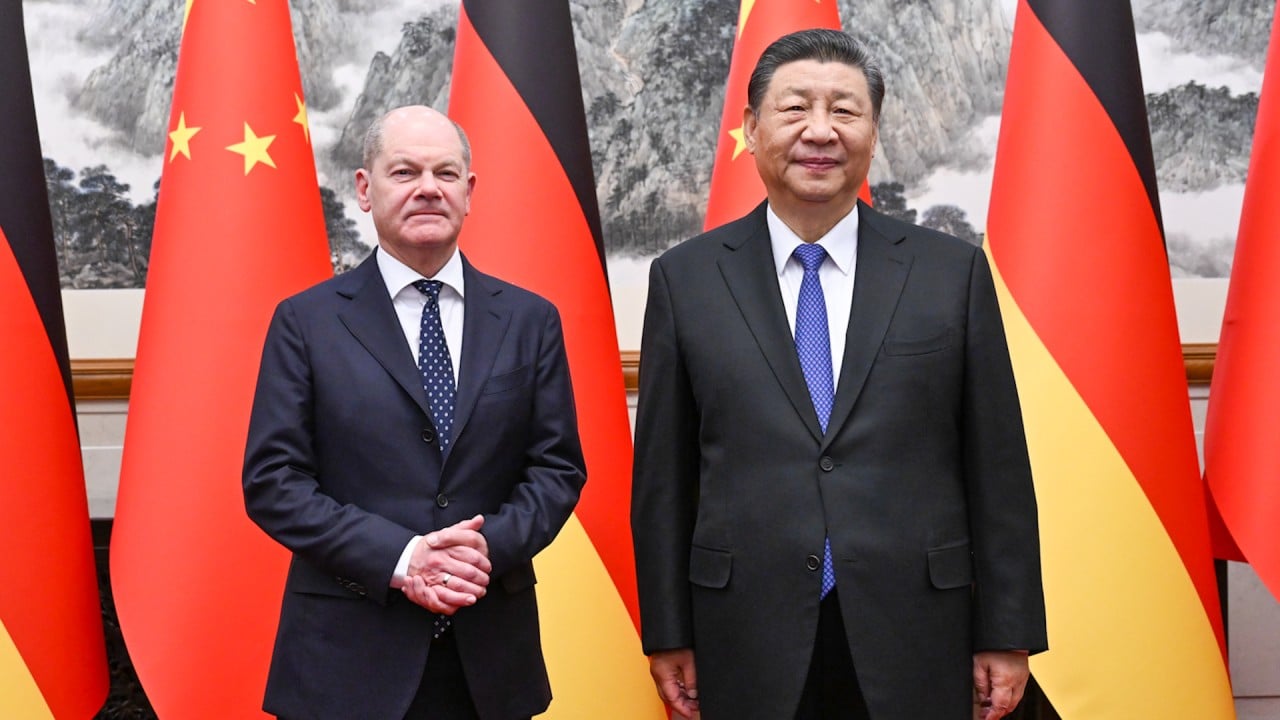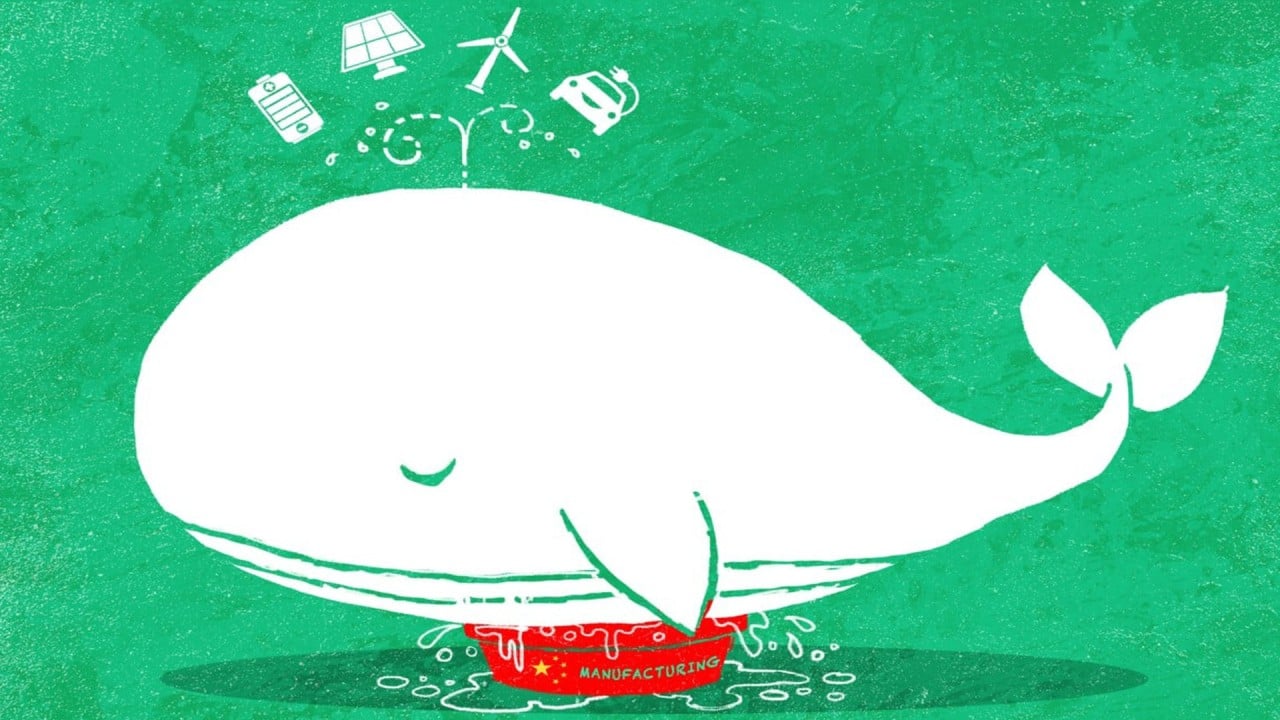
China-EU relations: Beijing promotes Hungary’s coming presidency as chance for ‘more pragmatic China policy’ in Europe
- Chinese Foreign Minister Wang Yi tells counterpart Peter Szijjarto in Beijing that Hungary is a ‘European country of unique influence’
- Under PM Orban, the country is seen as a Beijing and Moscow-friendly hard-right EU member, opposing decoupling and welcoming more Chinese investment
The message was delivered by Chinese Foreign Minister Wang Yi when meeting Peter Szijjarto, Hungary’s Minister of Foreign Affairs and Trade, in Beijing on Wednesday.
The meeting came ahead of a possible visit to the country that Chinese President Xi Jinping will reportedly make after visiting France and Serbia next month. Beijing has yet to confirm the trip.
Wang called Hungary “a European country of unique influence that adopts an independent policy”. He said Beijing hoped Budapest would encourage the EU to take a “rational and friendly view of China’s development” and pursue a “more active and pragmatic China policy”.
“[China hopes Hungary will] strengthen China-EU strategic communication, create more positive expectations for mutually beneficial cooperation, and promote the sustained, stable and healthy development of China-EU relations,” Wang said, according to Beijing’s statement.
In response, Szijjarto said Hungary opposed “decoupling” with China, and welcomed more investment from Beijing flowing into his nation under the Belt and Road Initiative, the readout said.
The foreign minister also said Hungary had always believed that treating China as a partner was “a right choice”, while regarding the powerhouse as an enemy would only lead to “missed opportunities”. Szijjarto vowed to boost China-EU relations through connections with Budapest and Beijing.
“China is a major country with global influence. Hungary welcomes China’s increasing role in maintaining world peace and stability. Hungarian-Chinese and European-Chinese relations must remain robust in the current turbulent international situation,” he said.
Trump hosts Hungary’s Orban at Mar-a-Lago, praises him as ‘fantastic leader’
Zoltan Kovacs, the Hungarian government’s international spokesman, posted on X, formerly Twitter, that the two foreign ministers’ talks saw progress on a Hungary-Serbia oil pipeline under the Belt and Road Initiative.
Kovacs said it would “enhance regional energy security, showcasing the deepening China-Central Europe cooperation”.
He also revealed that a Chinese state-owned telecommunication company – Fiberhome Telecom Tech – would establish its largest European base for optical cable production in Hungary, with an investment of 8 billion Hungarian forint (US$22 million). Its parent company, Wuhan Research Institute of Posts and Telecommunications Company, was added to the US Export Control Regulations entity list in 2020.
Despite the souring of relations between China and the US, a number of European leaders have visited Beijing this year, including German Chancellor Olaf Scholz, Dutch Prime Minister Mark Rutte and French Foreign Minister Stephane Sejourne.
Meanwhile, the bloc and some member states have taken action against China in recent months.
Under Prime Minister Viktor Orban’s rule, Budapest has been widely seen as a Beijing and Moscow-friendly hard-right EU member.
This year, a European Parliament resolution questioned whether the country can “credibly perform” its role when it takes up the rotating presidency and urged the European Council to “find an appropriate solution”.
Since Vladimir Putin invaded Ukraine, Hungary has extensively used its veto power to derail decisions aimed at punishing Russia or aiding Ukraine, such as the EU ban on Russian oil and the €50 billion (US$53 billion) special fund for Ukraine.



